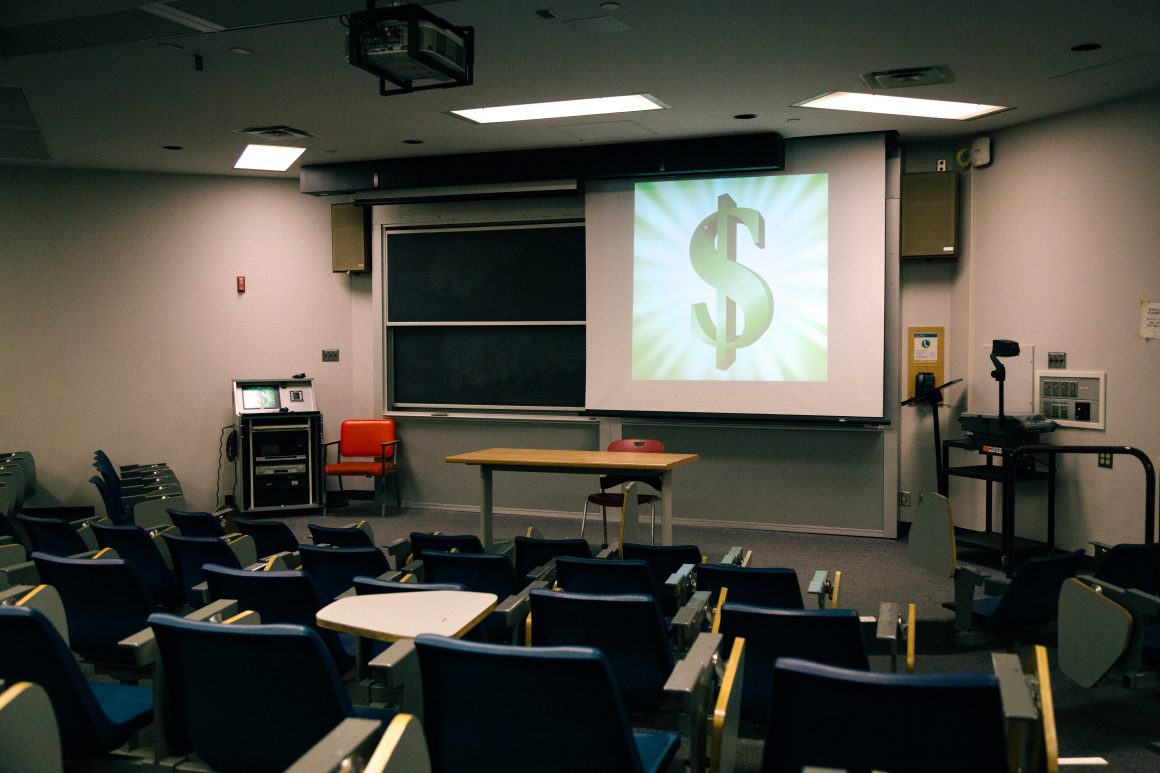
Sales pitches don’t belong in classrooms
By Sean Willett, January 17 2017 —
When I sat down for the first lecture of my molecular biology class, the person at the front of the room was not my instructor. Instead, the class was greeted by a representative of John Wiley & Sons Inc., the company that publishes the required textbook for the class.
What followed was a 10-minute sales pitch aimed at convincing students to buy new copies of the class’s required textbook. This type of blatant pandering from textbook companies has no place in the classroom and should not be allowed at University of Calgary.
The presentation was billed as a guide to accessing the company’s online resource, WileyPlus. These instructions were in no way necessary — few students in 2017 need an explanation of how to set up an account on a website and this information could have been delivered more effectively communicated through an e-mail or post on D2L. Instead, every student had to sit through a lengthy presentation, only a portion of which could be helpful.
Much of the presentation was actually devoted to convincing students that they should buy more Wiley brand products. The representative explained, at length, the benefits students would receive from WileyPlus — which can only be accessed by purchasing a new textbook or an online access code. These include additional study tools, practise questions and online access. The sales representative emphasized how helpful the benefits of WileyPlus would be for students, going as far to say that they are “the best way to get an A in this class.”
This is not a claim a textbook salesperson should be allowed to tell a class of mostly second-year biology students. Even ignoring that this Wiley representative has likely never taken this particular molecular biology class and therefore would not know how to best receive an A, telling students your product is the best way to do well is manipulative. Doing so during class time makes it even worse.
While I’m sure that the features offered by WileyPlus would be helpful to some students, they are in no way required in order to do well in a second-year biology course. I have done well in many of these courses with nothing but an old edition of the textbook and regular class attendance. No one actually needs online flash cards.
But having the presentation take up a significant amount of valuable class time makes WileyPlus seem like something everyone is expected to have, since all students are being made to watch. Why else, a student may think, would the instructor allow this to happen?
This presentation likely convinced some students that they need to buy a new textbook or that they need to purchase an access code to go along with the used textbook they already own. Either way, they will end up spending more money than they otherwise would have for something they probably don’t actually need.
New textbooks are expensive and prices have only climbed in recent years. Students aren’t exactly a group with a lot of money to spare and many buy used textbooks to try to save on the already high cost of education. I understand that publishers like Wiley are losing money because of this, but the strategy to combat this trend shouldn’t be to give sales pitches to classrooms in an attempt to trick or scare students into buying their products.
Additionally, the U of C should not allow for this type of presentation to occur during class time. Not only does it gives the illusion that costly optional material are required for all students to own and any useful information on how to access this material could be easily delivered in a less time consuming manner.
Forcing all students to sit through a sales pitch for something they don’t need is an unethical waste of time. Textbook publishers are enough of a pain as it is. The last thing we should be doing is giving them a bigger platform to stand on.
